April 15, 2025 | 21:00 GMT +7
April 15, 2025 | 21:00 GMT +7
Hotline: 0913.378.918
April 15, 2025 | 21:00 GMT +7
Hotline: 0913.378.918
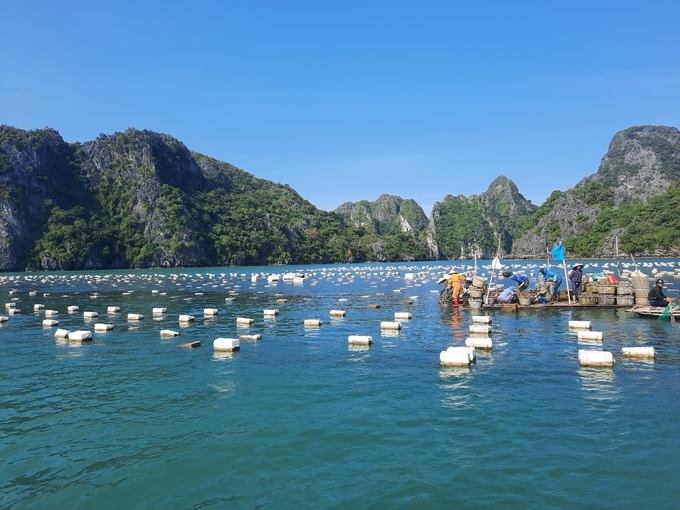
Quang Ninh has up to 5,500ha of marine culture using foam buoys. Photo: Nguyen Thanh.
The potential for aquaculture in Van Don district (Quang Ninh) is very huge, with an area of 1,600 km2. The district's output in 2020 reached 79,543 tons, an increase of more than 300% of the plan. The fishery production value in 2020 reached 126,000 billion, reaching more than 24% of the district's total income for the whole year.
However, aquaculture is currently facing many challenges. In addition to the issue of seed, unregulated exploitation, and the export of goods, the problem of pollution caused by foam buoys discharged into the sea is a concern for local managers.
Van Don district has actively implemented the resolution on environmental protection in aquaculture activities. The district requested all households and local farming businesses to join hands and convert foam floats to HDPE floating materials.
Currently, most of the marine aquaculture areas in Quang Ninh in general, and Van Don district in particular have been using foam buoys and some non-originating buoys. These buoys are freely sold on the market and their poor quality has caused pollution to the seawater environment. The damaged materials are also discharged into the sea.
While implementing the policy of replacing floating materials used in environmentally friendly marine aquaculture, local authorities have propagated and mobilized aquaculture households to switch from using foam floats to HDPE floats.
At the same time, the district review and make commitments with farming households and cooperatives; coordinate with banks to support and create favorable conditions for poor households to borrow capital. It also guides and connects the addresses of supplying floating materials to ensure standards and quality. These activities will gradually remove difficulties for aquaculture households.
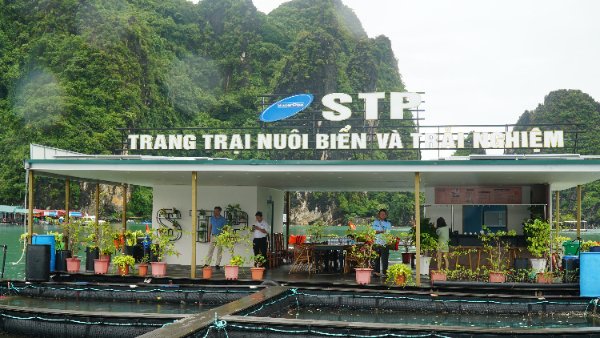
Sea farming area combined with experience tourism of Phat Co Cooperative (Van Don). Photo: Nguyen Thanh.
As a result, the progress of converting foam floats to environmentally friendly floating materials in Van Don district has reached about 60%. Mr. Nguyen Sy Binh, Director of Phat Co Aquaculture Cooperative (Ha Long commune, Van Don district) said that the cooperative has converted the entire foam float system to HDPE floats for 2ha of mollusk aquaculture. This is not only very environmentally friendly due to the material's long service life but also brings efficiency to aquaculture. It also ensures product quality domestically and qualifies for export to foreign countries.
After working in aquaculture for many years, Mr. Binh said that the floating foam buoys can only be used within 2 years. They will then shatter, disintegrate into pieces, or even into small particles floating on the sea surface. When they wash ashore, they will become inorganic garbage, and take a long time to decompose, taking away the destination's beauty. When in the water stream the buoys will be a food trap, killing all kinds of sea creatures.
Currently, localities such as Dam Ha, Ha Long, and Quang Yen have quite high conversion rates of 56%, 95%, and 53%, respectively. The remaining localities are Mong Cai, Hai Ha, Tien Yen, Van Don, and Cam Pha with a conversion rate from foam floats to HDPE floats of under 50%. Particularly in Van Don district, the locality has nearly 2.7 million foam buoys, accounting for 90% of the province's foam buoys, and only 10% of them have been converted.
Truong Phat is one of the pioneers in the standardization of floating materials in aquaculture in Quang Ninh. Ms. Nguyen Thi Hai Binh, General Director of Super Truong Phat Plastic Group Joint Stock Company, said that in the coming time, the company will implement support policies. These policies will benefit aquaculture farmers who convert foam floats to HDPE plastic floats, including consideration for people to buy floats with deferred payment, or installment payment. The company will also have a plan to handle foam floats after replacing them.
In addition to Truong Phat, other HDPE plastic float manufacturers and suppliers have also introduced after-sales policies for people. These include quality assurance, product warranty, commitment to buy back old products after use, and support for the consumption of aquatic products for households converting foam floats to HDPE plastic floats. According to Mr. Nguyen Minh Son, Director of the Quang Ninh Department of MARD, the difficulty of converting foam floats to HDPE plastic floats is the problem of initial investment capital for aquaculture farmers. Revenue decreased due to limited product consumption because of the Covid-19 pandemic. According to calculations of aquaculture households, investment in HDPE plastic floats is 2-3 times higher than in foam floats. Currently, the price of a plastic float fluctuates from VND70,000 to VND80,000, while a foam float costs less than VND30,000.
Quang Ninh Provincial People's Council issued Resolution No. 194 on July 30, 2019, on policies to encourage investment in the production, processing, and consumption of agro-products in Quang Ninh province so that aquaculture farmers can access investment loans. However, since its inception, this policy has not met expectations.
The fishery industry is the key economic sector of Quang Ninh province. Each year it brings a great source of income to the province and farming households. However, to develop the seafood industry in a sustainable and long-term way, not only for domestic consumption but also for export to the international market, it is necessary to have changes in the production process to ensure the most stringent requirements, including environmental factors.
Translated by Hoang Duy
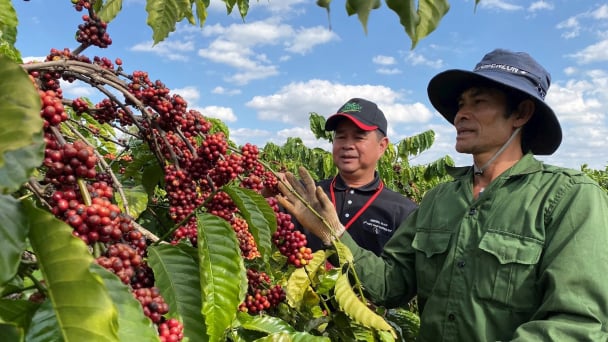
(VAN) Businesses emphasize fairness and equality when integrating social factors into their sustainable development strategies.
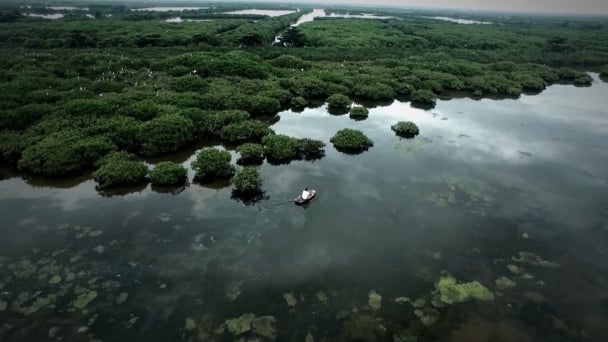
(VAN) French organizations and enterprises propose that Thai Binh province provide potential and long-term cooperation contents related to climate change response and green industrial development.
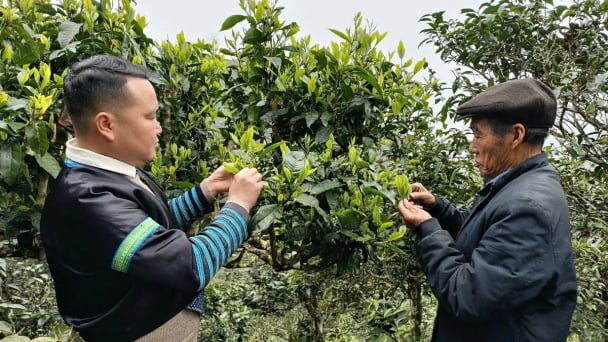
(VAN) Shan Tuyet tea is considered a 'heavenly treasure'. The H'mong people allow the tea to grow naturally, adhering to organic production principles, with the aim of exporting the product.
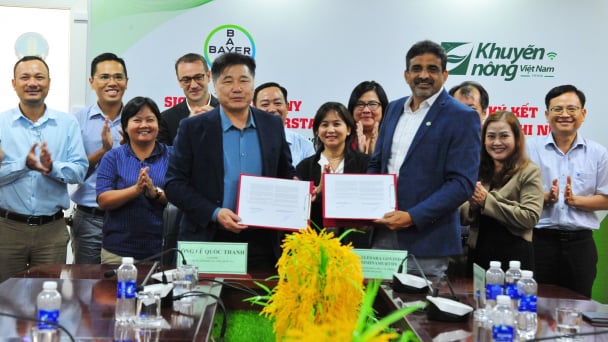
(VAN) Bayer Vietnam and the National Agricultural Extension Center have signed a partnership agreement to expand the development of effective and safe farming models for rice, durian, and coffee.
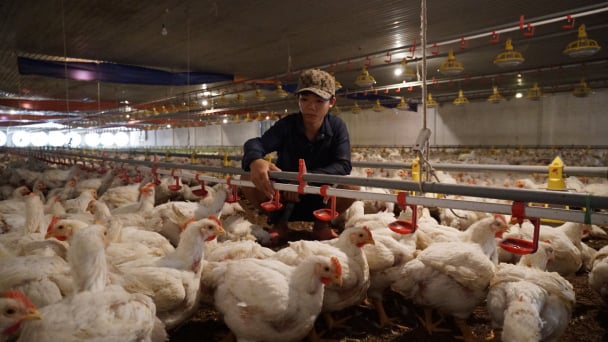
(VAN) Tay Ninh province possesses all the favorable conditions, from natural advantages to geographic location and social harmony, to drive economic development, particularly in attracting investment and advancing modern livestock farming.
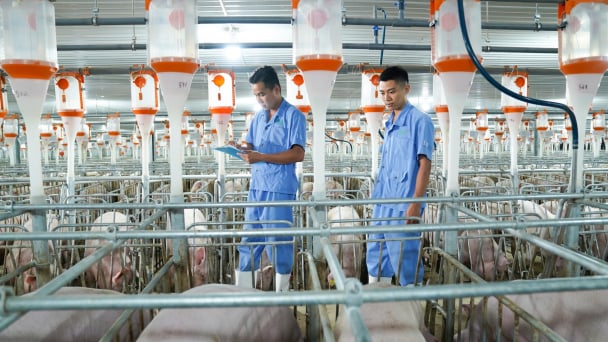
(VAN) Notably, every link in BAF's entire closed livestock value chain Feed - Farm - Food has received international certification.
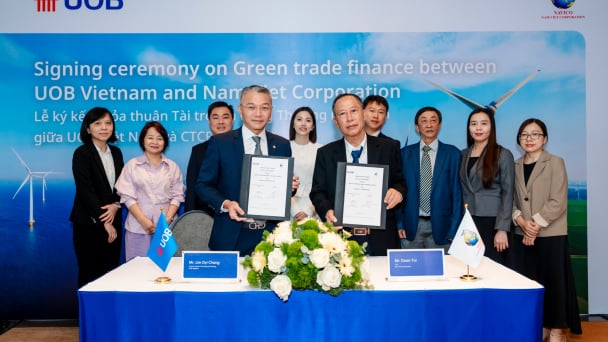
(VAN) UOB Vietnam has recently signed a green credit agreement with NAVICO to develop sustainable aquaculture that meets international standards.